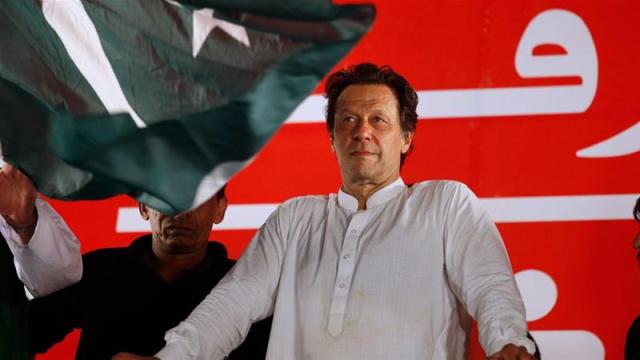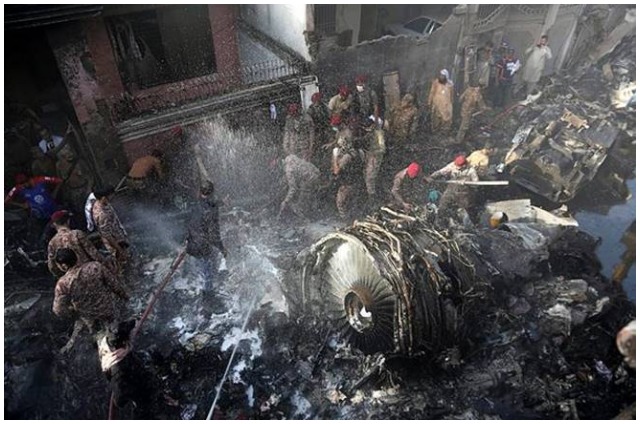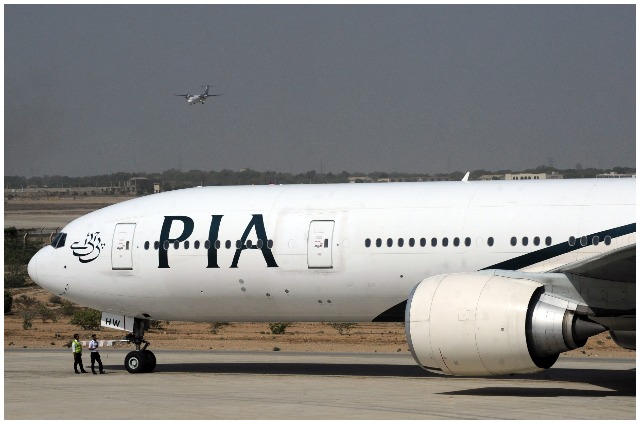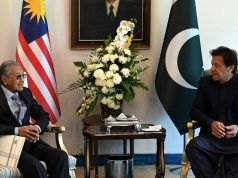

Pakistan Tehreek-i-Insaf (PTI) led Imran Khan has emerged as largest political party in Pakistan’s general elections as it is leading on 114 National Assembly seats and is likely to form next government in the country, defeating two main parties Pakistan Muslim League-Nawaz and Pakistan Peoples Party (PPP), reported Islamic Republic News Agency (IRNA).
Imran Ahmad Khan Niazi, was born to a Pashtun family in Lahore, Punjab, in 1952 and educated at Aitchison, Worcester, and later at Keble College, Oxford. He hails from city of Mianwali in Punjab.
He, notably, led Pakistan to victory at the 1992 Cricket World Cup, Pakistan’s first and only victory in that competition.
In the year 1996 he founded Pakistan Tehreek-e-Insaf (PTI) with an aim to create a welfare state, where the state is responsible for education, health and employability of citizens.
Khan contested for a seat in the National Assembly in October 2002 and served as an opposition member from Mianwali until 2007. He was again elected to the parliament in the 2013 elections, when his party emerged as the second largest in the country by popular vote.
His party also formed a coalition government in north-western province of Khyber Pakhtunkhwa province.
During the 1990s, Khan also served as UNICEF’s Special Representative for Sports and promoted health and immunisation programmes in Bangladesh, Pakistan, Sri Lanka and Thailand.
In 1994, he established Shaukat Khanum Memorial Cancer Hospital and Research Centre in Lahore, Pakistan’s first and largest cancer hospital. Later the hospital opened its second branch in Peshawar.
Khan established the cancer hospital, using donations and funds exceeding $25 million, raised by him from all over the world. On April 27 2008, Khan established a technical college in the Mianwali District called Namal College.
When in 1999 Pervez Musharraf toppled Nawaz Sharif’s government he strongly supported the move however later he regretted his decision. He boycotted elections in 2008 and remained out of the parliament for five years.
As per the trend of unofficial results of the general elections in 2018, so far the PTI appears set to its target of winning at least 115-120 of the National Assembly’s 272 seats. A political party must secure 172 seats to obtain and preserve a majority.
Imran, who repeatedly announced not to join hands with the PML-N or PPP for the formation of government, fielded nearly 800 candidates for the National Assembly and four assemblies.
Earlier Pakistan Tehreek-i-Insaf Chairman unveiling his party’s manifesto for general elections 2018, announced that he would turn Pakistan into a welfare state if voted into power. Titled ‘Road to Naya (new) Pakistan’, the manifesto is composed of seven chapters and explains in detail the PTI’s agenda for the next government.
One of the primary points of the manifesto, Khan said, is to turn Pakistan into an Islamic welfare state– a model the principles of which he said are also followed in Scandinavian countries.
Pakistan is currently griped into many problems such as terrorism, energy shortages, financial issues, and social challenges.
Imran Khan has always stood up against the traditional politics of Pakistan Muslim League-Nawaz and Pakistan Peoples Party (PPP) which attracted public’s attention. Now many people in Pakistan especially youth which forms major portion of Pakistan’s population have faith in Imran Khan.
For them Imran Khan is the only political leader who can put Pakistan on the right path. His stance against corruption in the country has also contributed a lot in his popularity among Pakistani public.
After the general election of 2013, Imran Khan blamed Nawaz Sharif’s Muslim League for rigging the election. A year later he launched a powerful campaign against the government of Nawaz Sharif and had a sit-in for more than 120 days in Islamabad.
Due to terrorist attack on army school in Peshawar which claimed lives of more than 140 people including students he called off the protest.
He then moved the Supreme Court of Pakistan seeking disqualification of the then Prime Minister Nawaz Sharif to hold any public office for being involved in corruption in Panama leaks. Later Supreme Court accepted his appeal and disqualified Nawaz Sharif from holding any public office.
Imran Khan has always stressed upon the government to follow an independent foreign policy without any external pressure.
His party came with a strong voice to express its anger against Saudi Arabia war on Yemen and asked the government not to join the war.
Through his Tweet message Imran Khan also lashed out at US President Donald Trump’s harsh comments against Pakistan.
So the US again blames Pakistan for its deeply flawed and failed Afghan policy stretching over a decade, Chairman of Pakistan Tehrik-e-Insaaf (PTI) Imran Khan said in a series of tweets.
“We must also reject being made scapegoats for the policy failures of the US,” he said.
“Our economy suffered over $100 billion in losses. In addition, there were intangible costs on our society. Time for Pakistan to say: Never again,” said Imran Khan.
He has a strong view against the US drone strikes in Pakistan which according to him is sheer violation of Pakistan’s territorial integrity.
Khan also led the two-day protest march against US drone strikes with some 15,000 of his supporters and dozens of Western peace activists to Tank, a town near Afghan border.
After increase in tensions between Iran and Saudi Arabia in early 2016, Imran Khan met with ambassadors of both countries in Islamabad, to play a role to calm down the situation.
Tehreek-e-Insaf (PTI) also supports early completion of Iran-Pakistan (IP) gas pipe line project which would help the country to overcome its energy woes.
Imran Khan has consistently criticised US aggressive policies in the region, including its negative attitude towards Iran.
Certainly Imran would not be able to solve country’s problems overnight; reforming Pakistan would be a long-term process which would need, more than anything, adherence to democratic principles and institution-building. But one thing is clear he has given new hope to the people of Pakistan.
–BERNAMA










